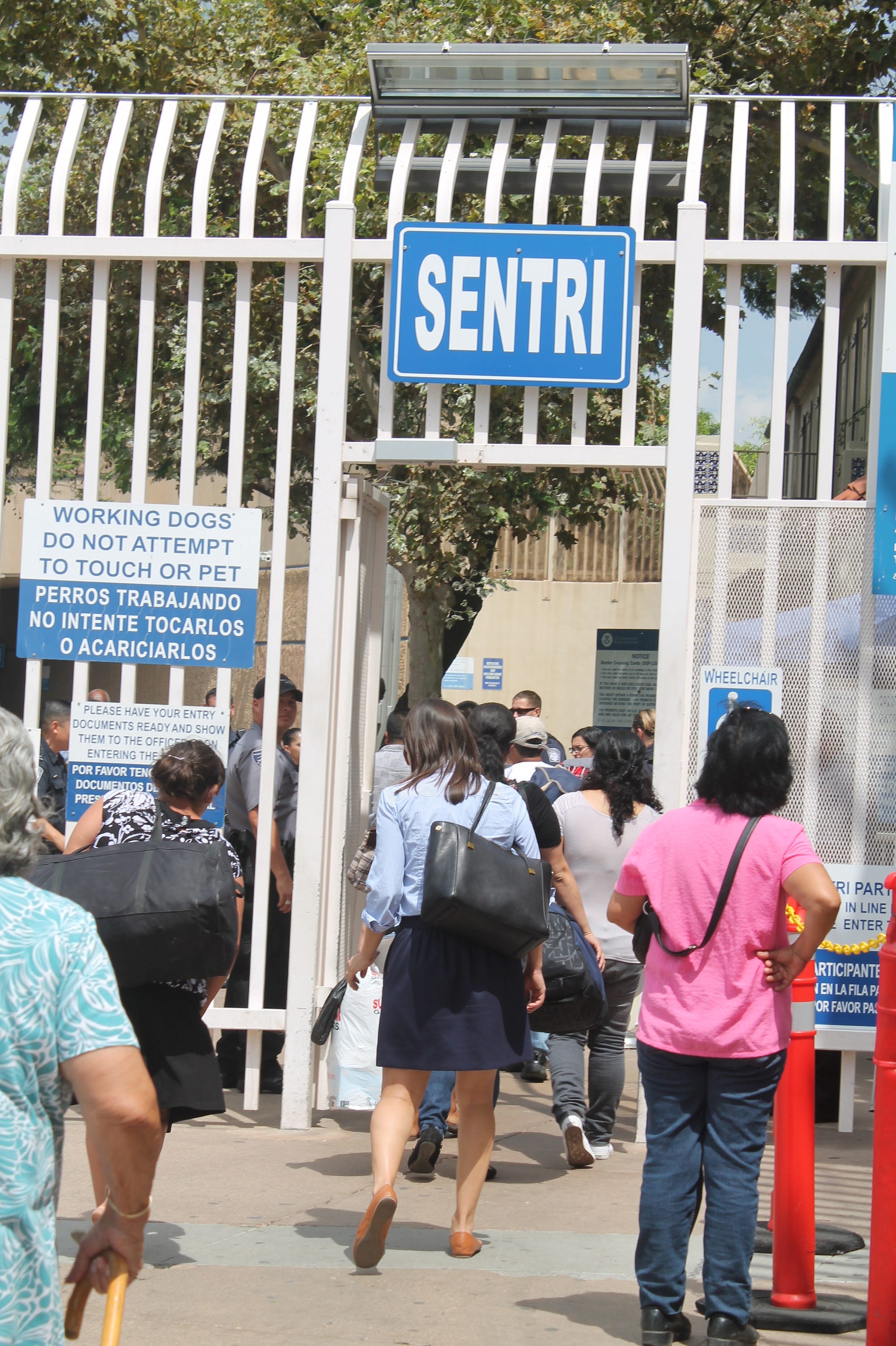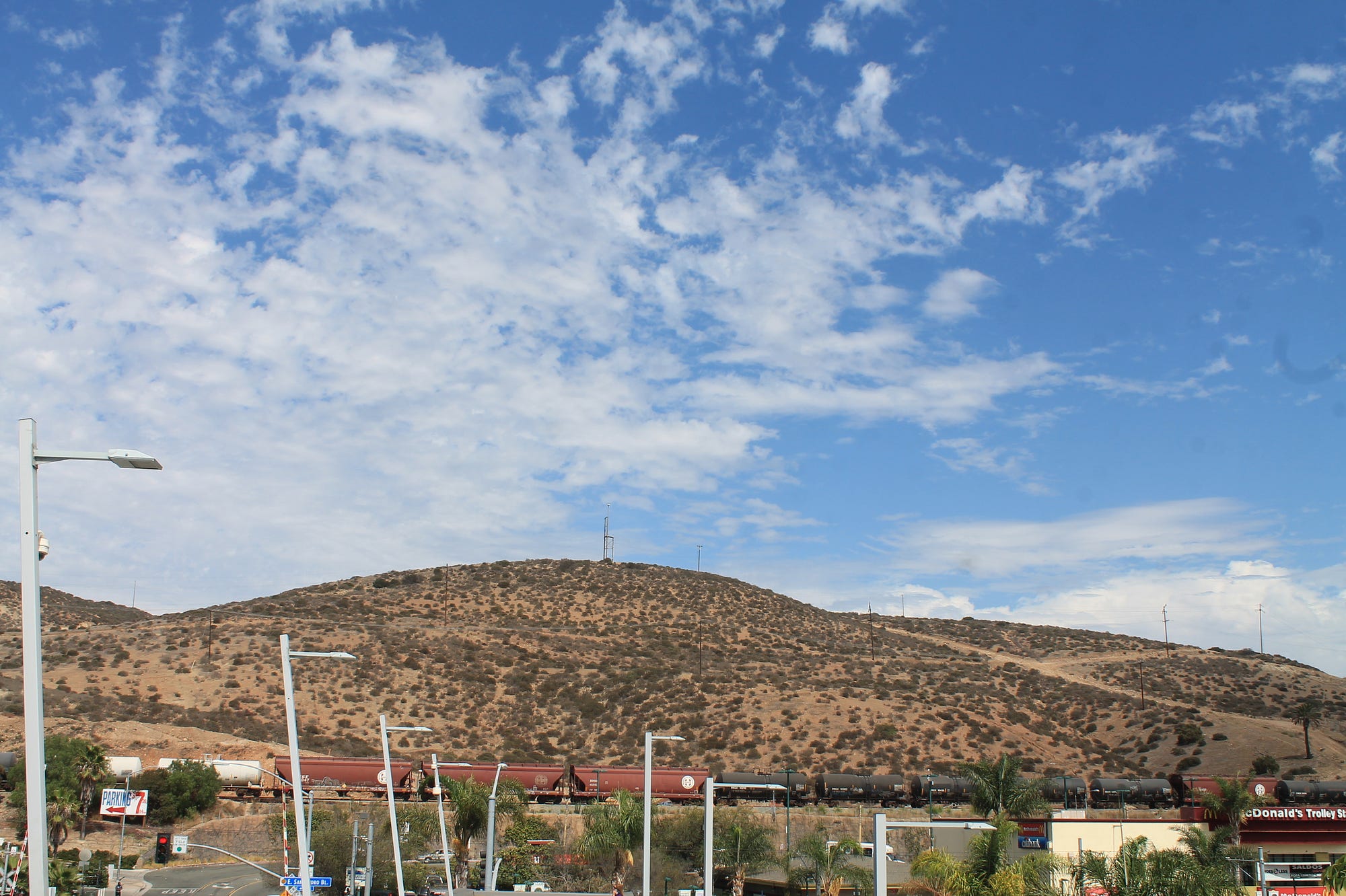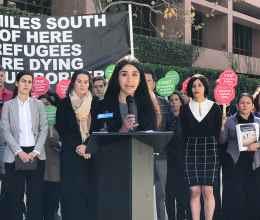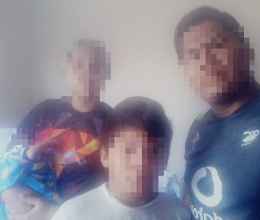By Mitra Ebadolahi, Border Litigation Project Staff Attorney at ACLU of San Diego and Imperial Counties
(Originally posted on the @SDACLU Medium page)
Last Thursday, March 17, Nicole Ramos, a U.S. immigration lawyer, escorted her client M. to the San Ysidro Port of Entry. M. is a Mexican transgender woman who has a disability and PTSD seeking asylum in the United States. U.S. law requires an asylum seeker like M. to appear at the port of entry for a credible fear interview and initial processing by U.S. Customs and Border Protection (CBP) officers. Accordingly, M. entered the line for asylum processing at the port.
For the next thirty-four hours, the CBP officers on duty failed to provide M. with any food.

When M. asked for food, she was either ignored or told that it was her responsibility to bring her own food down to the port. When M. tried to give the officers a copy of a letter explaining her disabilities and special needs — a letter prepared for her by Ms. Ramos, her attorney — CBP officers told her she had “wasted her money on an attorney” and that “the letter doesn’t mean shit.”
Over the next day and a half, Ms. Ramos spoke repeatedly with her client and CBP officers at San Ysidro. The CBP supervisor Ms. Ramos spoke with on Thursday evening assured her that CBP officers fed individuals awaiting asylum processing three times per day. But the supervisor Ms. Ramos spoke with on Friday morning told her that individuals would be provided with food only “if they asked.” And when Ms. Ramos finally spoke with CBP Chief Knox Friday evening, he told her that CBP “was not obligated to feed people on the Mexican side” of the port — a nonsensical statement, given the fact that asylum seekers await processing in the U.S.-controlled area of the port.
Although processing through the ports of entry may happen quickly, at times delays mean asylum seekers spend hours or days in line awaiting their interviews.
CBP’s denial of food to M. and similarly-situated asylum seekers awaiting processing violates both the U.S. Constitution and the agency’s own national policies.
Individuals who are neither charged with nor convicted of any crime, like M., have substantive due process rights under the Fifth Amendment to the United States Constitution. The denial of regular meals to such individuals unquestionably violates this core constitutional right.
Additionally, CBP’s inconsistent statements regarding agency policies indicate a lack of adequate training . Each and every line-level and supervisory CBP official should fully understand and consistently implement all basic protocols relevant to the humane treatment of individuals subject to CBP control at our ports of entry.

Finally, CBP’s unprofessional and abusive remarks are intolerable. CBP asserts that one of its “core values” is “defending and upholding the Constitution of the United States,” and that the agency is “guided by the highest ethical and moral principles.” Surely, starving and verbally abusing potential asylum seekers and their attorneys are entirely at odds with these basic precepts.
The ACLU filed a complaint with CBP yesterday. Meanwhile, M. is just starting an asylum-seeking process that places scores of transgender women in immigration detention just for seeking protection in the United States from violence in their home countries. Sadly, M.’s experience coincides with the release of a new report from Human Rights Watch that details how, once transgender women are placed in ICE detention, “many experience sexual assault and other forms of abuse and ill-treatment, including denial of access to necessary medical care.”
If you or someone you know has suffered abuse at the hands of CBP or ICE, contact the ACLU!








